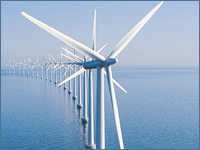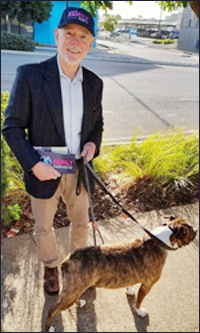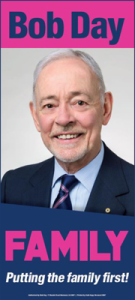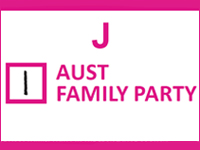 The most conspicuous feature of this election was the presence of the powerful ‘Baptists & Bootleggers’ phenomenon.
The most conspicuous feature of this election was the presence of the powerful ‘Baptists & Bootleggers’ phenomenon.
The term ‘Baptists & Bootleggers’ was coined during the 1920s Prohibition era in America, when the makers of illegal liquor – ‘Bootleggers’ – found ways to finance the ‘Baptists’ campaign to have alcohol banned. The Baptists were successful, alcohol was severely restricted and the Bootleggers made a fortune. These days we might call those Bootleggers ‘rent-seekers’. Rent-seekers use the political process to extract money from taxpayers and consumers.
And they are everywhere – in energy, superannuation, pharmaceuticals, higher education, land development, indigenous groups, public transport, manufacturing – you name it. They are a scourge. They tarnish the political process, distort the market and in the case of so-called ‘renewable energy’, distort the entire economy. No matter what industry you are in, that pay-rise you thought you deserved has gone into the pockets of rent-seekers lurking in the corridors of parliament house.
One day the whole renewable energy racket will collapse under the weight of its own absurdity, and someone will write a book called ‘50 Years of Madness: How the World was Conned’.
Another fascinating feature of the election has been what I call ‘voter switch’.
Huge numbers of voters switched from the major parties to minor parties and independents. Labor voters switched to the Greens, and Liberal voters switched to the ‘Teals’ – independent candidates in wealthy electorates financed by renewable energy investors. Labor voters switched to the Liberals in Tasmania and Liberal voters switched to Labor in WA.
But by far the biggest switch has been the complete reversal of the traditional socio-economic paradigm. 15 of the 20 poorest electorates in Australia are now held by the Liberals, whilst 15 of the 20 wealthiest electorates are held by Labor, Teals and the Greens! And despite Labor winning the election with 32% of the vote (Labor under Kevin Rudd won with 42%), in the SA seat of Spence, the poorest electorate in the state, Labor suffered a 6% swing against it. Go figure.
When nearly 70% of the electorate didn’t vote for the new government, you can bet it “won’t be easy for Albanese …”.
The under-30s, too, had a big impact on this election, by and large voting Greens.
But the most significant flow-on effect of the election was the Greens’ 30% increase in its Senate numbers. As we have been saying on this website for the past year, the 2016 Liberals/Greens deal to abolish Group Voting Tickets has seen the Greens pick up an extra three Senate seats, taking their number to 12. Again, the Liberals can rail all they like about the influence of the Greens, but they have only themselves to blame.
So why did Labor win the election – or more to the point – why did the Liberals lose? The Liberals’ Coalition partner, the Nationals, haven’t lost a seat in three elections.
During the pandemic, the government provided massive stimulus packages which kept thousands of workers in their jobs and thousands of businesses’ doors open. The unemployment rate was an incredibly low 3.9% and interest rates were at all-time lows. The government seems to have received no credit for this. There was also instability on the world stage – Russia and China in particular – all of which normally bode well for the Coalition.
So what happened?
Personally, I think as well as committing the nation to ‘Net Zero by 2050’ and racking up a one thousand billion dollar debt, the ‘Family, Faith and Freedom’ factor had something to do with it.
Family – cost of living was rated the No 1 issue of concern to voters. Faith – Scott Morrison failed to carry through on his promise to legislate protection of religious freedom. As a result, exemptions for faith-based schools in their hiring choices are now under threat. And Freedom – his appalling judgement in allowing State Premiers to introduce the most draconian, police-state lockdowns which confined people to their homes, closed schools, separated the elderly from their families, and coerced people into taking an unproven vaccine – all counted against the Prime Minister and his government.
As for what the outcome in the Senate will be, at this stage we have no idea whether I’ll be elected or not. It’s certainly not out of the question we could get a significant ‘below the line’ vote given that we didn’t have a party name above the line. As members would know, last year the major parties increased the minimum number of members a party needs in order to gain federal registration from 500 to 1,500. No below-the-line votes have yet been counted, so we’re not giving up just yet …
But regardless of who wins that last Senate seat in SA – be it us, One Nation, the Liberal Democrats, or whomever – standing at the polling booths alongside six other like-minded, centre-right parties – One Nation, Lib Dems, UAP, Australian Federation Party, Great Australian Party and the Nationals – a total of seven minor parties – made me think that there has to be a better way. Whichever minor party wins that last seat, there has to be a good case for the other parties to fall in with it. A policy council comprising all seven parties under the banner of the party who wins must surely be considered.
Speaking of standing at polling booths, can I once again say ‘thank you’ to all our volunteers. Manning a polling booth – a number of members stood for ten hours straight – is no mean feat. Installing and removing all the campaign posters is also a challenge (if you see a stray campaign poster, please report it here.) Thank you.
And finally, as discussed in our ‘Sitting Ducks’ newsletter a fortnight ago, we have one last invoice to pay in the amount of $5,000 for the how-to-vote cards. So far, we have raised $2,700 towards it. We want to finish well – the campaign has gone like clockwork – we just have that final box to tick.
 A number of years ago I was building a house at Magill in Adelaide’s east when one of our bricklayers arrived on site with his bull terrier dog. Bricklayers always preferred bull terriers as pets because if a brick accidently fell on the dog’s head, the dog didn’t feel it and in fact thought it was a game and waited for more bricks to be dropped.
A number of years ago I was building a house at Magill in Adelaide’s east when one of our bricklayers arrived on site with his bull terrier dog. Bricklayers always preferred bull terriers as pets because if a brick accidently fell on the dog’s head, the dog didn’t feel it and in fact thought it was a game and waited for more bricks to be dropped. This incident came back to me last Saturday afternoon when I was asked to look after a voter’s bull terrier dog while its owner went in to vote at the Munno Para early voting centre in Adelaide’s north. Long-standing Family Party member and volunteer Roger Potger snapped the accompanying photo and dubbed it ‘Dog Day Afternoon’.
This incident came back to me last Saturday afternoon when I was asked to look after a voter’s bull terrier dog while its owner went in to vote at the Munno Para early voting centre in Adelaide’s north. Long-standing Family Party member and volunteer Roger Potger snapped the accompanying photo and dubbed it ‘Dog Day Afternoon’. There’s a scene in the movie ‘Black Hawk Down’ where the sergeant yells to one of his soldiers, ‘Get in the truck and drive!’ ‘But I’ve been shot’, the soldier replies. ‘We’ve all been shot, now get in and drive’.
There’s a scene in the movie ‘Black Hawk Down’ where the sergeant yells to one of his soldiers, ‘Get in the truck and drive!’ ‘But I’ve been shot’, the soldier replies. ‘We’ve all been shot, now get in and drive’. A political candidate was asked where he stood on the issue of duck shooting.
A political candidate was asked where he stood on the issue of duck shooting. At the recent State election we drew box J, the 10th letter of the alphabet. Readers may recall the reference to the 10th letter of the Hebrew alphabet ‘Yud’ in a recent
At the recent State election we drew box J, the 10th letter of the alphabet. Readers may recall the reference to the 10th letter of the Hebrew alphabet ‘Yud’ in a recent  Consider for a moment the humble postage stamp. Its usefulness lies in its ability to stick to one thing until it gets to where it has to go.
Consider for a moment the humble postage stamp. Its usefulness lies in its ability to stick to one thing until it gets to where it has to go. As most members would know, last year the major parties increased the minimum number of members a party needs in order to gain federal registration from 500 to 1,500 – a threefold increase (what did Adam Smith say about ‘industry incumbents banding together to keep out new entrants’?) This ruled out the Australian Family Party running in the forthcoming Federal election.
As most members would know, last year the major parties increased the minimum number of members a party needs in order to gain federal registration from 500 to 1,500 – a threefold increase (what did Adam Smith say about ‘industry incumbents banding together to keep out new entrants’?) This ruled out the Australian Family Party running in the forthcoming Federal election. In the aftermath of the election, it looks likely that Labor will govern with an absolute majority of at least 7 seats in the House of Assembly and will gain an extra seat in the 22-seat Legislative Council, taking its tally to 9, the Liberals 8, Greens 2, SA Best (who were not up for re-election) 2, and One Nation 1. The government should have little trouble getting its agenda through the parliament with that composition.
In the aftermath of the election, it looks likely that Labor will govern with an absolute majority of at least 7 seats in the House of Assembly and will gain an extra seat in the 22-seat Legislative Council, taking its tally to 9, the Liberals 8, Greens 2, SA Best (who were not up for re-election) 2, and One Nation 1. The government should have little trouble getting its agenda through the parliament with that composition. In his excellent book Blink! Malcolm Gladwell describes how it is possible to weigh up situations in the ‘blink’ of an eye.
In his excellent book Blink! Malcolm Gladwell describes how it is possible to weigh up situations in the ‘blink’ of an eye. Voters can choose whether to vote above or below the line – but not both. Voters can also choose whether to number just one box above the line, all 19 boxes above the line or any number in between. If voting below the line, a voter must number a minimum of 12 boxes.
Voters can choose whether to vote above or below the line – but not both. Voters can also choose whether to number just one box above the line, all 19 boxes above the line or any number in between. If voting below the line, a voter must number a minimum of 12 boxes. “It is dangerous to make predictions – especially about the future.”
“It is dangerous to make predictions – especially about the future.”